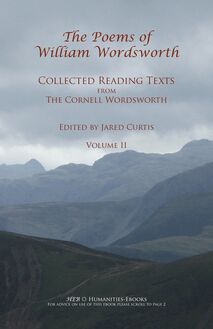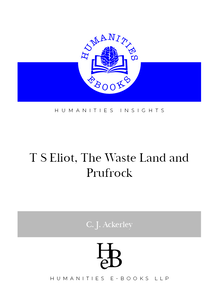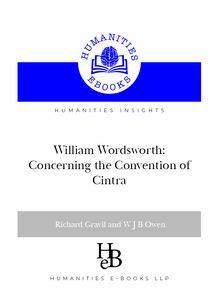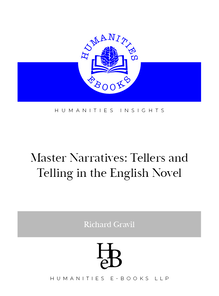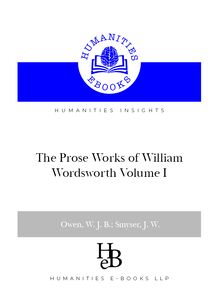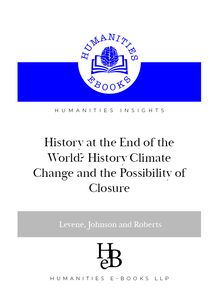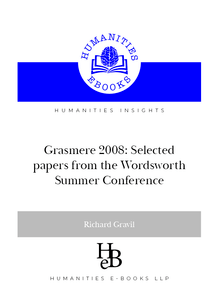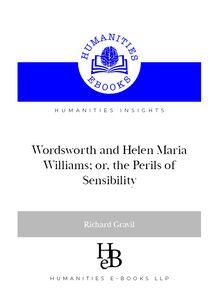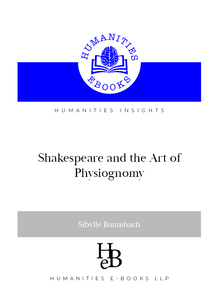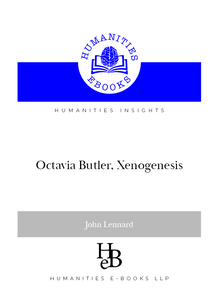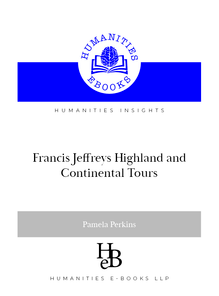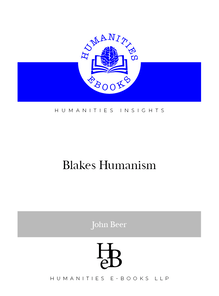Grasmere 2009: Selected papers from the Wordsworth Summer Conference , livre ebook
222
pages
English
Ebooks
2021
Obtenez un accès à la bibliothèque pour le consulter en ligne En savoir plus
Découvre YouScribe et accède à tout notre catalogue !
Découvre YouScribe et accède à tout notre catalogue !
222
pages
English
Ebooks
2021
Obtenez un accès à la bibliothèque pour le consulter en ligne En savoir plus
Publié par
Date de parution
11 janvier 2021
Nombre de lectures
2
EAN13
9781847601094
Langue
English
Poids de l'ouvrage
2 Mo
Publié par
Date de parution
11 janvier 2021
EAN13
9781847601094
Langue
English
Poids de l'ouvrage
2 Mo
Grasmere 2009
Selected papers from the Wordsworth Summer Conference
compiled by
Richard Gravil
HEB ☼ FOR ADVICE ON THE USE OF THIS EBOOK PLEASE SCROLL TO PAGE 2Using this Ebook t
* This book is designed to be read in single page view, using the ‘ft
page’ command.
* To navigate through the contents use the hyperlinked ‘Bookmarks’ at
the left of the screen.
* To search, click the search symbol.
* For ease of reading, use <CTRL+L> to enlarge the page to full screen,
and return to normal view using < Esc >.
* Hyperlinks (if any) appear in Blue Underlined Text.
Permissions
Your purchase of this ebook licenses you to read this work on-screen.
You may print a copy of the book for your own use but copy and paste
functions are disabled.
No part of this publication may be otherwise reproduced or transmitted or
distributed without the prior written permission of both the copyright owner
and the publisher.
Making or distributing copies of this book would constitute copyright
infringement and would be liable to prosecution. Thank you for
respecting the rights of the author. Grasmere, 2009
Selected Papers from the Wordsworth Summer Conference
compiled by Richard Gravil on behalf of
The Wordsworth Conference Foundation
HEB ☼ Humanities-Ebooks, LLP© Te Wordsworth Conference Foundation, 2009
Copyright is asserted by the Foundation on behalf of the contributing
authors.
Cover photograph showing Derwentwater, with Castle Crag and Glaramara
© C. E. J. Simons
First published by Humanities-Ebooks, LLP,
Tirril Hall, Tirril, Penrith CA10 2JE
Te Ebook is available to individual purchasers exclusively from http://www.
humanities-ebooks.co.uk and to libraries from http://www.MyiLibrary.com.
Te paperback is available exclusively from Lulu.com
ISBN 978-1-84760-109-4 Ebook
ISBN 978-1-84760-110-0 PaperbackContents
Gillian Beer
Darwin and Romanticism 7
Richard Cronin
Wordsworth and the Current Press 27
Paul H. Fry
Time to Retire? Coleridge and Wordsworth Go to Work 45
Alexandra Drayton
‘Vagrant dwellers in the houseless woods’: Gypsies and the idea of the
picturesque in ‘Tintern Abbey’ and The Task 63
Mark Sandy
“Still the Reckless Change We Mourn:’ Wordsworth, Loss and the
Circulation of Grief 73
Claire Lamont
Wordsworth and the Romantic Cottage 84
James Baxendine
The Common Daylight and the Light of Common Day 104
Heidi Thomson
The Construction of William Wordsworth in Sara Coleridge’s 1847
Edition of Biographia Literaria 117
Saeko Yoshikawa
Sarah Hutchinson’s Viewpoints: Her Journals in the Lake District, March
to August 1850 132
James Castell
Wordsworth’s Peter Bell and animal life 146
Emily B. Stanback
Acts of Resistance: Lamb, Thelwall, Wordsworth, and Socio-Medical
Classifcation 158
C. E. J. Simons
Alms and the Man: Wordsworth’s Later Patronage 177
Nicholas Roe
A Rhinoceros among Giraffes: John Keats and the Elgin Marbles 200Gillian Beer
Darwin and Romanticism
Charles Darwin was born in 1809, as few of us can fail to have
noticed this year, and before he was 23 he had set out from England
on the 5 year journey of the Beagle round the world, his time largely
concentrated in South America. It was a journey that would expose
him to every kind of contradiction: extreme climatic conditions,
primal forests, stately hospitality, extensive land journeys through
uncharted territory accompanied only by his servant and an indigenous
guide, persistent sea sickness and claustrophobia in a cabin shared
with the irascible and fervently religious Captain Fitzroy, boredom
and euphoria, everyday sightings of countless new kinds of organic
life, and intermittent encounters with people from a whole variety of
cultures and tribes and classes. When he returned to England aged 28,
arriving on 2 October 1836, Victoria was not yet queen. Her accession
to the throne came more than eight months later, on 22 June 1837. So
Darwin was not a Victorian in his upbringing or through those crucial
years at Cambridge and the yet more crucial years with the Beagle.
The young Darwin read the Romantic poets, if not quite as his
contemporaries, still as the modern canon gathering through his childhood
and youth. He was a schoolboy when Childe Harold’s Pilgrimage was
published between 1812 and 1818, Shelley’s Prometheus Unbound
appeared in 1820, and Walter Scott’s The Antiquary in 1816. Those
three poets are among the many that he cites in the private notebooks
of 1837 and 1838 written on his frst return from the Beagle and in the
reading lists he maintained from 1838 through to 1860. Sometimes
the citations are unexpected, even droll. For example, ‘Walter Scott
(Antiquary) vol II, p126, says seals knit their brows when incensed’
(Metaphysics, Materialism, and the Evolution of Mind: Early
Writings of Charles Darwin, Edited by Paul H.Barrett with
commentary by Howard Gruber (1980) p79.) The reading lists are published 8 Grasmere, 2009
as ‘Darwin’s Reading Notebooks’, appendix four of volume 4 of The
Correspondence of Charles Darwin, Edited by Frederick Burkhardt
and Sydney Smith (1980), pp.434–573. My argument here pays
close attention to the Notebooks in Barrett’s edition and to Darwin’s
Reading Notebooks (which I have here simply called reading lists to
distinguish them from the Notebooks) as sources for understanding
the formation of Darwin’s creativity.
In his 1837–38 Notebooks he explores ideas of consciousness, the
senses, variability, dream, descent, and animal behaviour. He
ransacks his reading and explores even seemingly absurd possibilities in
the adventure of mental exploration: does an oyster have free will?
Do plants have an idea of cause and effect? Do wasps have reason?
(I have discussed his interest in other forms of consciousness
extenrdsively in a new chapter, 9, Darwin’s Plots, 3 edition, 2009.) The
notebooks show him observing details with the most acute
precision and surfng large ideas with the utmost freedom. He reads Hume
and Dugald Stewart: he ponders the sublime and the passions; he
acknowledges ruefully that
We can allow/ satellites/ planets, suns, universes, nay whole
systems of universes to be governed by laws, but the smallest insect,
we wish to be created at once by special act, provided with its
instincts, its place in nature, its range, its – etc.etc. – must be
a special act, ... The Savage admires not a steam engine, but a
piece of coloured glass, is lost in astonishment at the artifcer.
Our faculties are more ftted to recognised the wonderful struc -
ture of a beetle than a Universe –. (Barrett, p.77)
This is part of his refusal to allow astronomers to have all the visionary
authority.
Law to him is not in opposition to wonder, but is rather the energy
of the wonderful. Uncovering the laws by which a beetle has been
structured turns out to be equivalent in complexity to uncovering the
laws that span the universe. So scale is not the arbiter of signifcance.
He generates large questions from details, from physical symptoms:
in one notebook entry children blubbering, fear- loosened sphincters,
involuntary tears, convulsive wrinkling of the muscles, all combine
into two large questions: ‘But why does joy, & other emotions make Gillian Beer 9
grown up people cry What is emotion?’ (Barrett, p.80–81) And he
turns for frst thoughts on the matter to Burke and Wordsworth as
authorities: ‘At end of Burke’s essay on the sublime and the
beautiful there are some notes, & likewise in Wordsworth’s dissertations on
Poetry.– ’ ( p.80–81)
A passage from the Voyage of the Beagle brings home the
emotional responsiveness of the young Darwin to the sublime in
landscape, as well as some of the peculiarities of that responsiveness. He
is climbing in the mountains in Chile and has reached a height where
breathing has become diffcult:
When about halfway up we met a large party with seventy loaded
mules. It was interesting to hear the wild cries of the muleteers,
and to watch the long, descending string of the animals; they
appeared so diminutive, there being nothing but the bleak
mountains with which they could be compared. When near the summit,
the wind, as generally happens, was impetuous and extremely
cold. On each side of the ridge we had to pass over broad bands of
perpetual snow which now were soon to be covered with a fresh
layer. When we reached the crest and looked backwards, a
glorious view was presented. The atmosphere resplendently clear, the
sky an intense blue; the profound valleys; the wild broken forms;
the heaps of ruins, piled up during the lapse of ages; the
brightcoloured rocks, contrasted with the quiet mountains of snow; all
these together produced a scene no one could have imagined.
Neither plant nor bird, except a few condors wheeling around
the higher pinnacles, distracted my attention from the inanimate
mass. I felt glad that I was alone: it was like watching a
thunderstorm, or hearing in full orchestra a chorus of the Messiah.
(Voyage, Edited David Amigoni, 1997, p.307)
Extremes of scale; extremes of silence; extremes of time; ruins and
drifts; but no mist: everything clear, intense, profound; and culture and
nature equally called in to express that intensity: a thunderstorm, or a
full orchestra and chorus from the Messiah; watching and listening.
The sublime here is natural, unpeopled, with a hint of the sacred: yet
Darwin remembers the pack-animals and muleteers winding down
the mountain and the impossibility of fxing their scale (just as the 10 Grasmere, 2009
enormous condors wheeling overhead seem slight). And when he says
that he was glad to be alone, he was not alone. His two indigenous
guides and their mules are with him, though in his imagination they
fall away, leaving the young stranger – estranged to himself – solitary
and the only spectator, alone in a romantic landscape at once orthodox
in its properties and profoundly personal in its detail.
He is both diminished and expanded. But this romantic intensi
